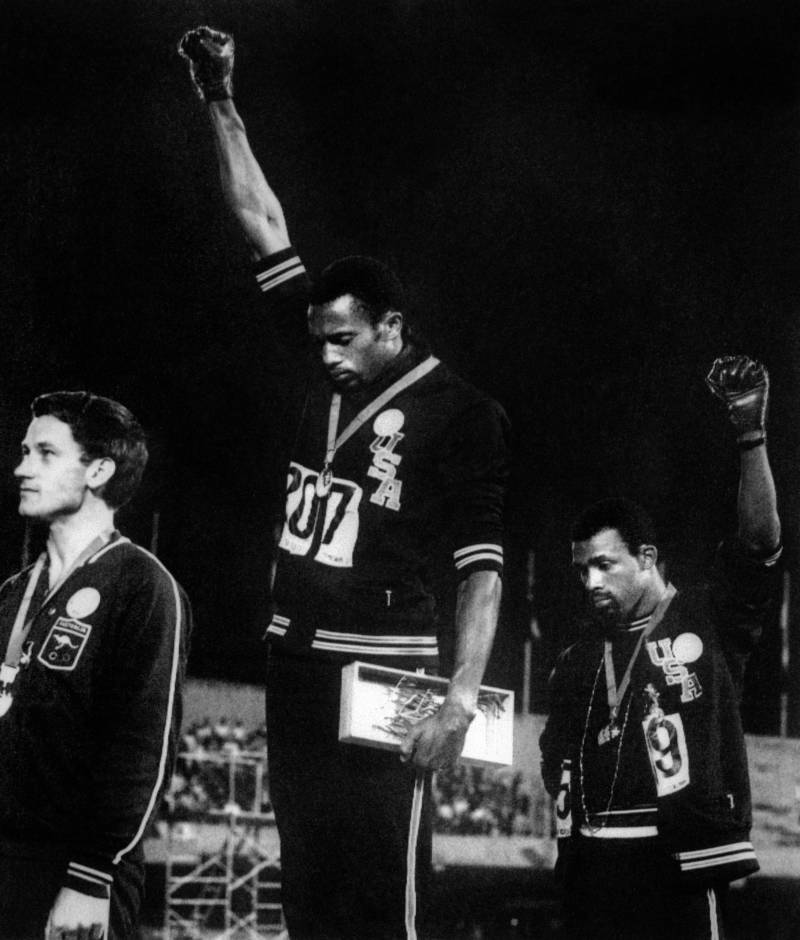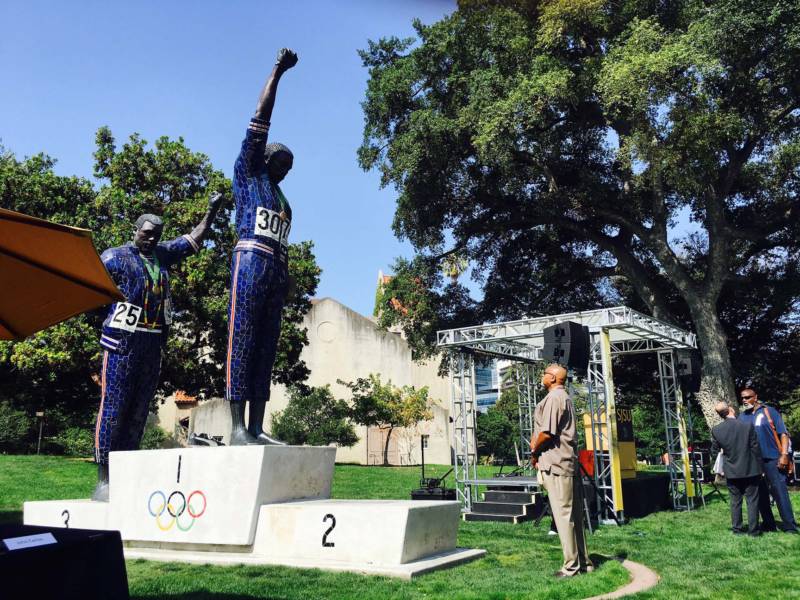Former Olympic sprint stars and civil rights activists Tommie Smith and John Carlos earned fame and scorn when they raised their gloved fists on the medal podium at the 1968 Mexico City Games and bowed their heads through the national anthem in protest during the heart of racial tension in the U.S.
They were booted out of the Olympic village, condemned and sent home, then eventually celebrated back in the Bay Area years later.
As the Rio de Janeiro Olympics prepare to kick off this week, these two men returned to where they shined on campus at San Jose State and now have a 23-foot statue of that history-making moment, helping the university with the announcement Monday that it is reinstating the storied men's track and field program in 2018 after nearly three decades without one.
"The Olympic project for human rights was started, and it was completed," Smith said Monday. "We'll stand behind ideas like that 'till the day we die. This statue on my right represents you all. John Carlos and Tommie Smith might be the ones who put a foot on those steps, who were standing, but let me tell you, when we walked off, we carried you with us. I humbly thank all of you for the support back then. ... One great man said, 'There is redemptive actions in proactive sacrifices,' and I thank God that he made it possible and we took those steps to bring it forward."

The renowned and respected "Speed City" track team Smith and Carlos carried to success and Olympic glory is back at last — with the two sprinters now in their 70s.
